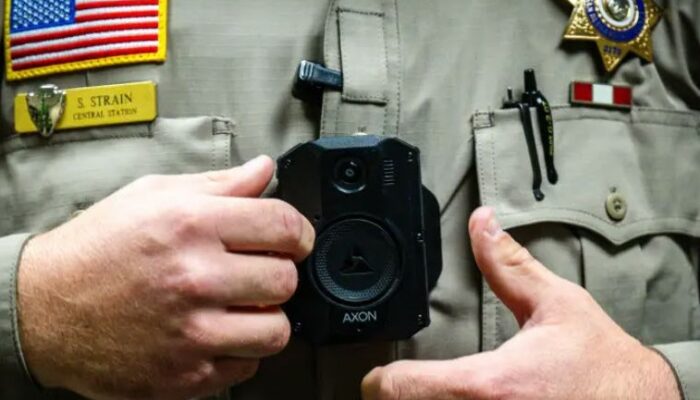The widespread adoption of police body cameras was meant to increase transparency and hold law enforcement accountable. While footage can be crucial evidence in misconduct cases, the reality is more complicated. Departments sometimes withhold or “lose” recordings, and even when available, bodycam videos don’t always tell the full story. If you’ve been a victim of police misconduct, understanding how body camera footage can help—or hurt—your case is critical.
At Steering Law, we specialize in police misconduct litigation and have successfully used bodycam evidence to secure justice for our clients. If you believe officers violated your rights, schedule a free case evaluation with our team today.
When Body Camera Footage Helps Prove Misconduct
Body cameras can be powerful tools for exposing police abuse. In many cases, footage has:
- Contradicted officers’ false reports – Video evidence often reveals discrepancies between what police claim happened and what actually occurred.
- Shown excessive force – Clear recordings of unjustified violence, such as unnecessary beatings or improper use of weapons, can make or break a case.
- Proven wrongful arrests – Footage may show that officers lacked probable cause, leading to dismissed charges or civil rights claims.
For example, in 2023, the Los Angeles Police Department (LAPD) settled a $10 million lawsuit after bodycam footage showed officers brutally beating a Black motorist during a traffic stop. The video directly contradicted the officers’ claims that the man had resisted arrest, leading to disciplinary action and a substantial payout for the victim.
At Steering Law, we’ve successfully used bodycam evidence to secure favorable outcomes for clients, including a $750,000 settlement in a case where footage revealed officers used excessive force during an unlawful detention. When available, we aggressively obtain and analyze recordings to build the strongest possible case.
Challenges: When Police Departments Withhold or “Lose” Footage
Despite their potential for transparency, body cameras don’t always guarantee accountability. Common issues include:
1. “Missing” or Deleted Recordings
Some departments claim technical failures or “accidental” deletions when footage could expose misconduct. In 2022, the San Francisco Police Department faced scrutiny after bodycam video from a controversial arrest mysteriously disappeared. Without the recording, the victim’s legal team had to rely on witness testimony—a much harder path to justice.
2. Delayed or Selective Release
Police agencies sometimes delay releasing footage or only provide edited clips that favor their narrative. In Oakland, a 2021 case revealed that officers had muted their bodycams before using force, raising suspicions of intentional evidence suppression.
3. Officers Failing to Activate Cameras
Despite policies requiring bodycams to be on during interactions, some officers “forget” to turn them on—especially in incidents where misconduct is likely.
These tactics make it harder to prove misconduct, but an experienced civil rights attorney can fight to recover footage or use other evidence to support your claim.
How Steering Law Handles Bodycam Evidence in Misconduct Cases
When you work with our firm, we take immediate action to secure and analyze bodycam footage, including:
- Filing public records requests to obtain recordings before they’re lost or destroyed.
- Working with forensic experts to recover “deleted” footage when possible.
- Comparing video with police reports to expose inconsistencies.
- Using witness testimony and other evidence when footage is unavailable.
Our track record speaks for itself. In one case, we obtained bodycam footage that showed officers fabricating charges against a client, leading to a $500,000 settlement. In another, we proved that a department had intentionally withheld critical video, resulting in disciplinary action against the officers involved.
What to Do If You Believe Police Misconduct Occurred
If you’ve been mistreated by law enforcement, take these steps to protect your rights:
- Document everything – Write down officers’ names, badge numbers, and witness contact information.
- Seek medical attention – If injured, get treated immediately and keep records.
- Preserve evidence – Save torn clothing, photos of injuries, or damaged property.
- Contact a lawyer immediately – The sooner we can request bodycam footage, the better.
Schedule a Free Case Evaluation with Steering Law
Bodycam footage can be a game-changer in police misconduct cases—but only if it’s obtained and used correctly. At Steering Law, we know how to navigate these challenges and fight for the justice you deserve. Don’t wait—evidence disappears quickly. Contact us today for a free, confidential consultation. We work on a contingency basis, meaning you pay nothing unless we win your case.

Steering Law is a California-based civil rights and criminal defense firm led by Jerry L. Steering, Esq. The firm focuses on police misconduct cases, including excessive force, false arrest, malicious prosecution, contempt of cop incidents, and 42 U.S.C. §1983 civil rights actions, while also handling serious criminal defense matters. Steering Law is dedicated to protecting clients’ constitutional rights and delivering justice for individuals who have been wronged by law enforcement.
